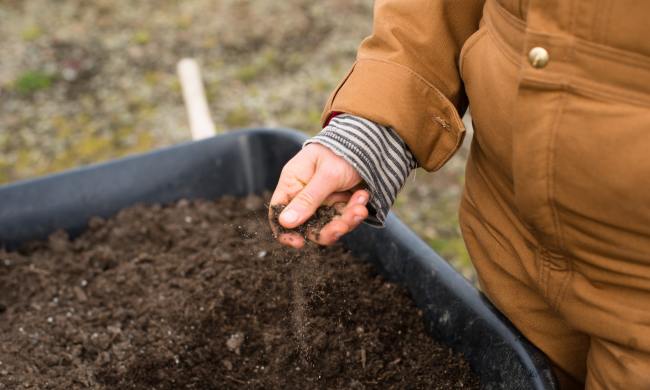Every gardener wants their plants to grow and thrive, and the first step towards that is to plant them in healthy, high-quality soil. If your garden’s soil isn’t naturally perfect, don’t despair! There are plenty of things you can add to improve your soil’s quality. Soil conditioners are a great example of this. Not sure what a soil conditioner is, or where to find the best ones for your garden? Then you’re in the right place, because we’re going to tell you all about soil conditioners and even recommend a few for you.
What are soil conditioners?
Soil conditioners are any substance that you add to soil to improve it’s texture, pH, or nutrient balance. If that seems like a broad category, you’re right, it is! In fact, there’s a good chance you’ve used a soil conditioner in your garden before without realizing it. If you’ve ever used a fertilizer in your garden, you’ve used a soil conditioner, and compost is one of the most commonly used soil conditioners.
Compost is used primarily to improve the nutrient balance of soil, but there are soil conditioners for every factor of soil health. There’s peat moss, vermiculite, and perlite to loosen soil and improve water retention. Limestone, peat moss, and sawdust change soil pH. Gypsum adds calcium, and polysaccharides reduce soil erosion.
These are the most commonly used soil conditioners, and they’re often used in combination. You can create your own soil conditioner mix, customized to fit your garden’s specific needs. However, if you aren’t sure how to go about making your own mix, we’ve prepared a list of five great pre-made soil conditioners for you.
Charlie’s Compost
If you want all the benefits of compost, but don’t have the time or energy to make your own, then why not try a pre-made compost? Charlie’s compost is a great choice, especially if you value transparency in ingredients. Charlie’s compost is made on the company’s poultry farm, with fresh, organic materials. It consists of chicken manure, clay, and various plant matter such as hay and corn stalks. Since it is made with manure, which is high in nitrogen, using too much can result in nitrogen burn. This can be easily avoided as long as you follow the instructions on the bag.
Simple Lawn Solutions’s Soil Loosener
If your soil is tightly compacted, either by repeated pressure or because it’s clay-rich, you might want something to loosen it up. Compacted soil is difficult for roots to grow through, and it restricts their access to air and water. Simple Lawn Solutions has a soil loosener that can help you out. Their soil loosener is primarily made of ammonia laureth sulfate. Although the chemical name might sound intimidating, it’s a commonly used soil softener with proven results. Once your soil is a bit softer, it’s much easier to amend in other ways.
Jobe’s Organic Garden Lime
Soil pH can be a tricky factor, especially when you’re just starting out. Regularly testing your soil pH can help you stay on top of it, but there’s still the matter of adjusting the pH. Lime is used to make soil more alkaline and less acidic. When the soil is too acidic, plants can have difficulty accessing nutrients. Jobe’s Lime is organic, reliable, and easy to use. It even has instructions for how much to use based on your soil’s existing pH, not just garden size, which takes out all the guesswork.
Brut Worm Farm’s Worm Casting
Worm castings are the nutrient rich droppings that earthworms leave behind. You can harvest your own by vermicomposting, or composting with worms, but you can also depend on Brut Farms to do it for you. Worm castings are excellent for improving both the nutrient balance and the texture of soil. Brut Worm Farms raise their own worms, rather than outsourcing, so you can be sure you’re getting great quality at a fair price. Plus, you can rest assured that the worm castings you receive are as fresh as possible.
Down to Earth Organic Greensand Fertilizer
Greensand is a naturally occurring mineral mix that’s mined from the remains of ancient oceans and is primarily made of glauconite. Greensand is a great source of potassium, as well as some micronutrients such as iron and magnesium. The sandy texture of greensand is also useful for loosening soil and improving drainage. Down to Earth is a great choice if organic gardening is something you value. Their greensand fertilizer is OMRI certified organic, and it even comes in a compostable box.
Now that you know all about soil conditioners, you’re ready to get out there and improve your garden’s soil. If you have a little spare time, you could try your hand at making your own soil conditioner mix. Don’t worry if that doesn’t sound like your idea of a good time, though! Rest assured that the five pre-made soil conditioners we’ve found for you will take care of your soil’s needs.



